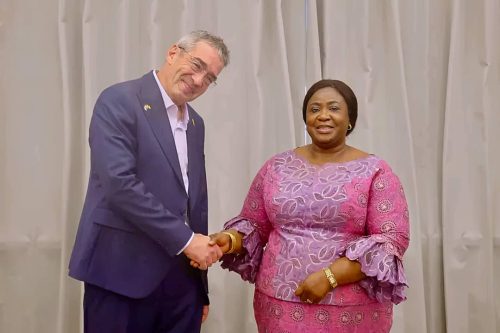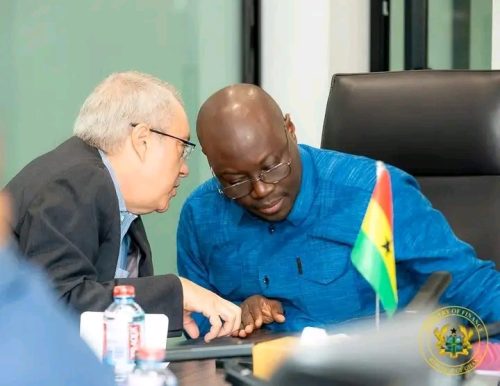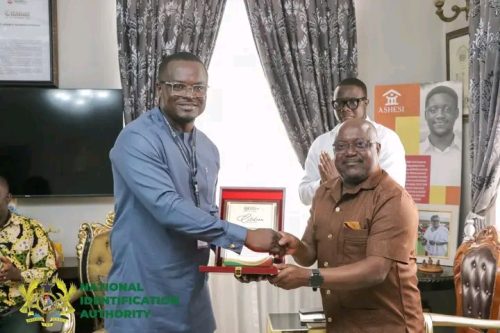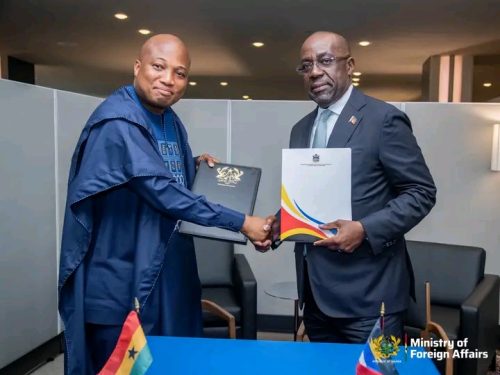

By Enock Akonnor (Managing Editor)

At the Pan African AI Summit held in Accra, the Minister for Communication, Digital Technology and Innovations, Hon. Samuel Nartey George (MP), reaffirmed Africa’s strategic position in the global Artificial Intelligence (AI) landscape, describing the continent as the world’s next “gold mine” due to its immense and growing data resources.


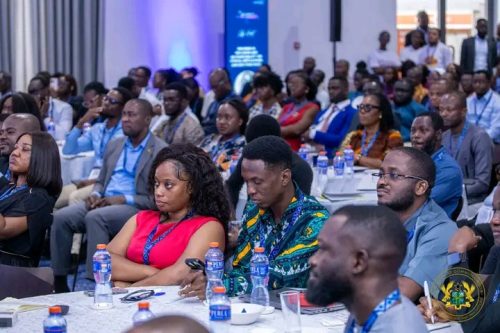


Addressing participants at the summit, Hon. George emphasized that Africa’s youthful population is a major driver of the data economy.

With projections showing that by 2030 one in every four people in the world will be African and the continent’s average age standing at just 23, he noted that this demographic generates vast volumes of data that, if properly governed, can become a transformative global asset.
Highlighting the risks of external dependency, the Minister cited a report revealing that U.S. Homeland Security systems achieve only 49 percent accuracy when processing data on Black males, attributing this to the underrepresentation of African datasets. This, he said, reinforces the need for Africa to take ownership of its data and develop sovereign AI capabilities.

Outlining Ghana’s AI agenda, Hon. George identified three priority sectors for AI deployment: agriculture, to bolster food security; healthcare, to enhance last-mile delivery; and education, to close the digital divide.
He also announced plans for Ghana to host a major tech gathering dubbed the “Africa Tech Davos” in Accra by mid-next year.
The event will convene ICT Ministers from across the continent, leading global tech companies such as Google, Microsoft, Nvidia, and Oracle, as well as local innovators, to develop a unified strategy for Africa’s digital transformation.
One of the key technical challenges identified by the Minister is language accessibility.
He noted that many AI-driven agricultural tools especially those using drone or satellite imagery remain unusable by farmers in regions like Bono and Damongo because they operate only in English.
To bridge this gap, he revealed that academic institutions have been tasked with developing large language models (LLMs) in local languages. Progress has already been made in Twi, Ga, and Nzema, with ongoing efforts in Ewe and Dagbani.
At the continental level, similar models are being developed for languages such as Hausa, Yoruba, Swahili, and Creole.
Hon. George concluded by underscoring the importance of data-driven governance. He warned against policymaking based on sentiment, advocating instead for the use of AI to manage repetitive tasks and optimize human capacity for critical thinking.
However, he stressed that AI must remain a support tool, not a replacement for human intelligence and judgment.
Source; www.leakyghana.com

Enock Akonnor is an experienced Ghanaian journalist and currently serves as the CEO and Managing Editor of www.leakyghana.com.
With a wealth of expertise built over many years in the media industry, he has earned a solid reputation as one of Ghana’s most sought-after journalists.
Contact:
📞 +233 541 921 562
✉️ enockakonnor2013@gmail.com





